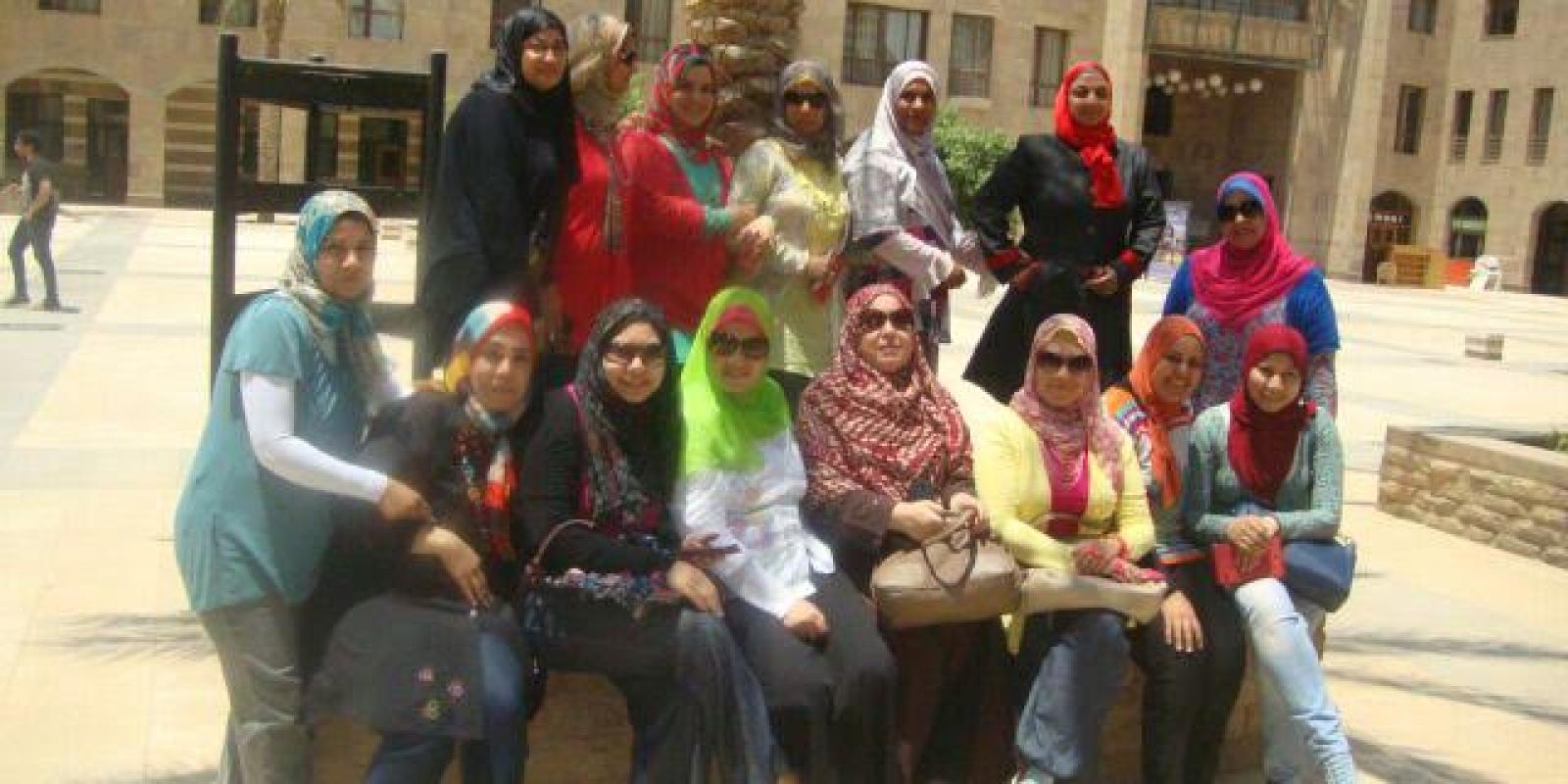
AUC Faculty Members Train Public School English Teachers in Ma’asara
The Academic Community Engagement (ACE) Teacher Training Program is expanding AUC’s borderless classroom to Ma’asara, providing 20 public school teachers from the area with professional and technical training.
A collaborative effort with the Department of English Language Instruction and the Center for Learning and Teaching, the project had AUC faculty members training public school teachers over the summer through 40 hours of professional development courses, split evenly between English language training and new teaching technologies. The program covered a range of topics including lesson planning, classroom management, grammar, teaching reading and writing skills, presentation skills, Microsoft Word, Microsoft Excel, multimedia technologies, Google Drive and Google Docs.
Aimed at improving English language instruction in public schools, the training introduced the teachers to new techniques and technologies. “Many of these teachers had started teaching 20 years ago and hadn’t had any training since then,” said ACE Director Pandeli Glavanis.“We are working to fill this gap, reinforcing things they already knew and showing them new things. They already have the passion. We just provided them with the knowledge and resources they need to succeed.”
Yasmine Salah El-Din, a senior instructor in ELI, agreed, saying that throughout the program her students were committed to learning, "The trainees were all interested, motivated and engaged in the program. They tried their best to learn and later on apply what they have learned in their own teaching contexts, as clearly expressed in the interview TV Channel II had with two of them. Even during Ramadan when they were fasting, they were all enthusiastic and came early in the morning, ready for a day full of learning activities."
Glavanis explained that the program’s focus on teachers is part of a larger effort at AUC to provide sustainable education development throughout Egypt. “AUC is a leader in education,” he affirmed. “Previously, we’ve focused on underprivileged children and women’s empowerment, and now we want to include professionals. We decided to start with teachers because they have a broad impact on their communities, connecting with students and other educators.”
Building off the success of the first round of training in the summer, the program will offer a second, more intensive round in the spring. “We will train the same 20 teachers, making the training longer and more in depth,” explained Glavanis. “With this more intensive program, we’ll be training the trainers. These teachers will become experts and can share what they’ve learned with the other teachers at their schools.”
The second round of training will also include master’s students in AUC’s Teaching English to Speakers of Other Languages program, reinforcing what they’ve learned in their classes while also reaching out into the community, said Nagwa Kassabagy, chair of the Department of English Language Instruction. “This will be an excellent opportunity for our students to practice teaching and, at the same time, their participation will benefit the trainees,” said Kassabgy.
Hoda Grant, a writing instructor in the Department of Rhetoric and Composition and one of the senior professors involved in the training, said the program also benefits AUC faculty members. “The experience has made us as faculty get out of our bubble and reach out to the community,” she declared. “It is a win-win situation because as much as the Ma’asara teachers have benefited, we as teachers have found the whole experience extremely fulfilling. Serving others and the community at large is always rewarding.”
Programs like this offer the AUC community the opportunity to make a lasting impact on education in Egypt, Grant noted. “I believe this experience can be repeated to help teachers in other governorates outside of Cairo, and it can succeed if there is the vision and passion to make a difference and to improve the skills of public school teachers,” she said. “AUC's faculty members and students have always been agents of change, and I believe if they share their knowledge and expertise with the community, they will help make a real change in the field of education in Egypt.”
